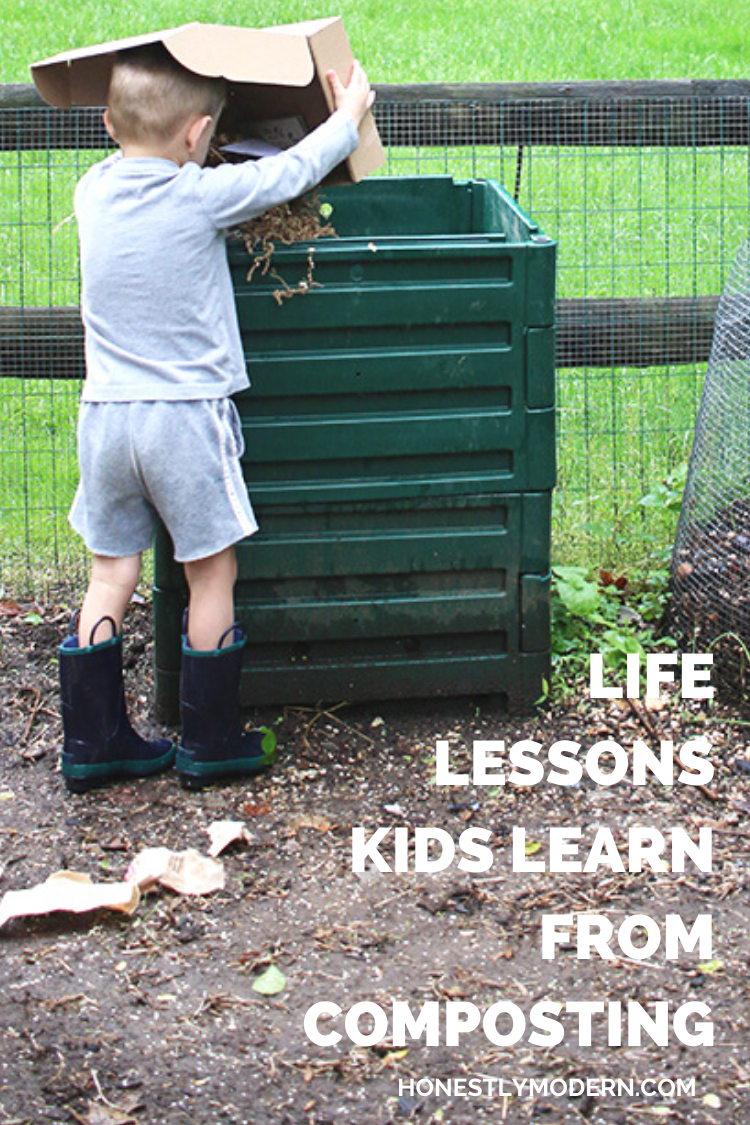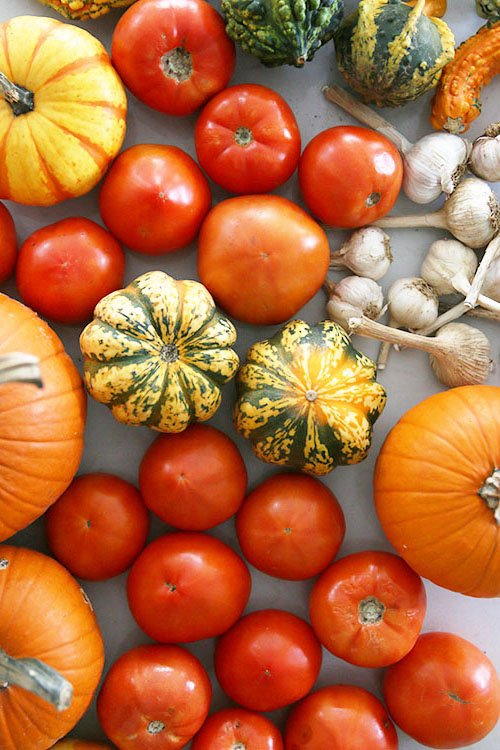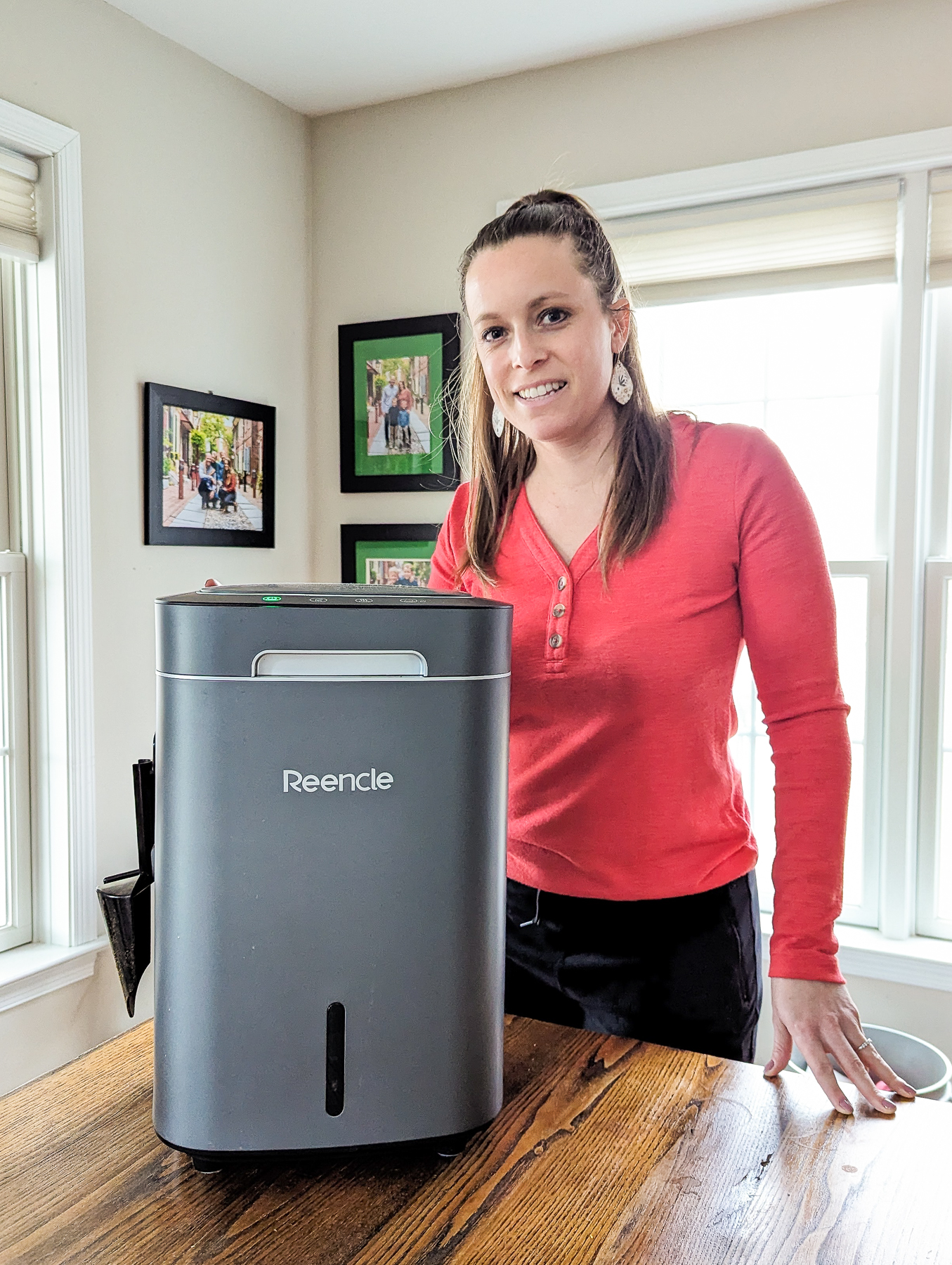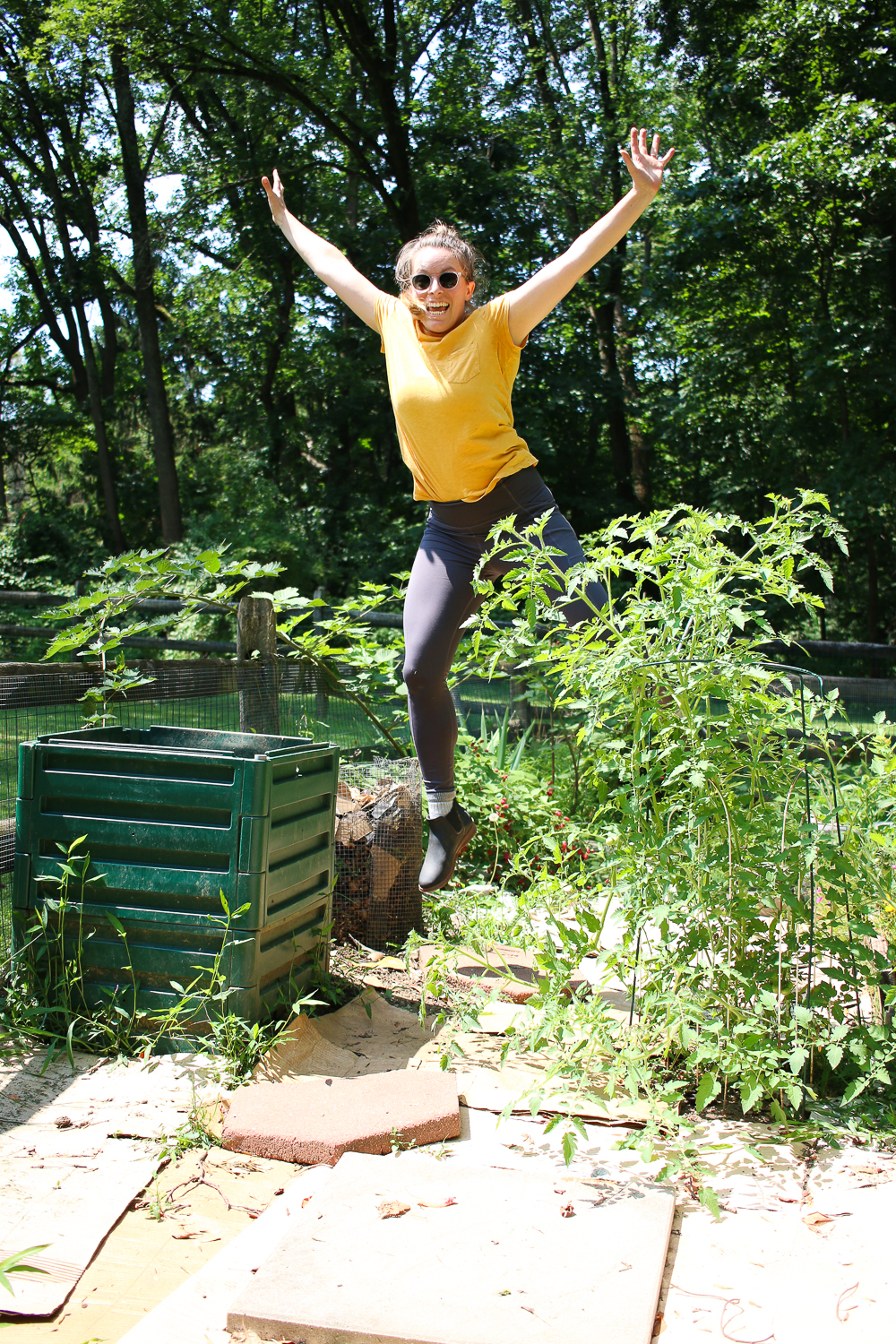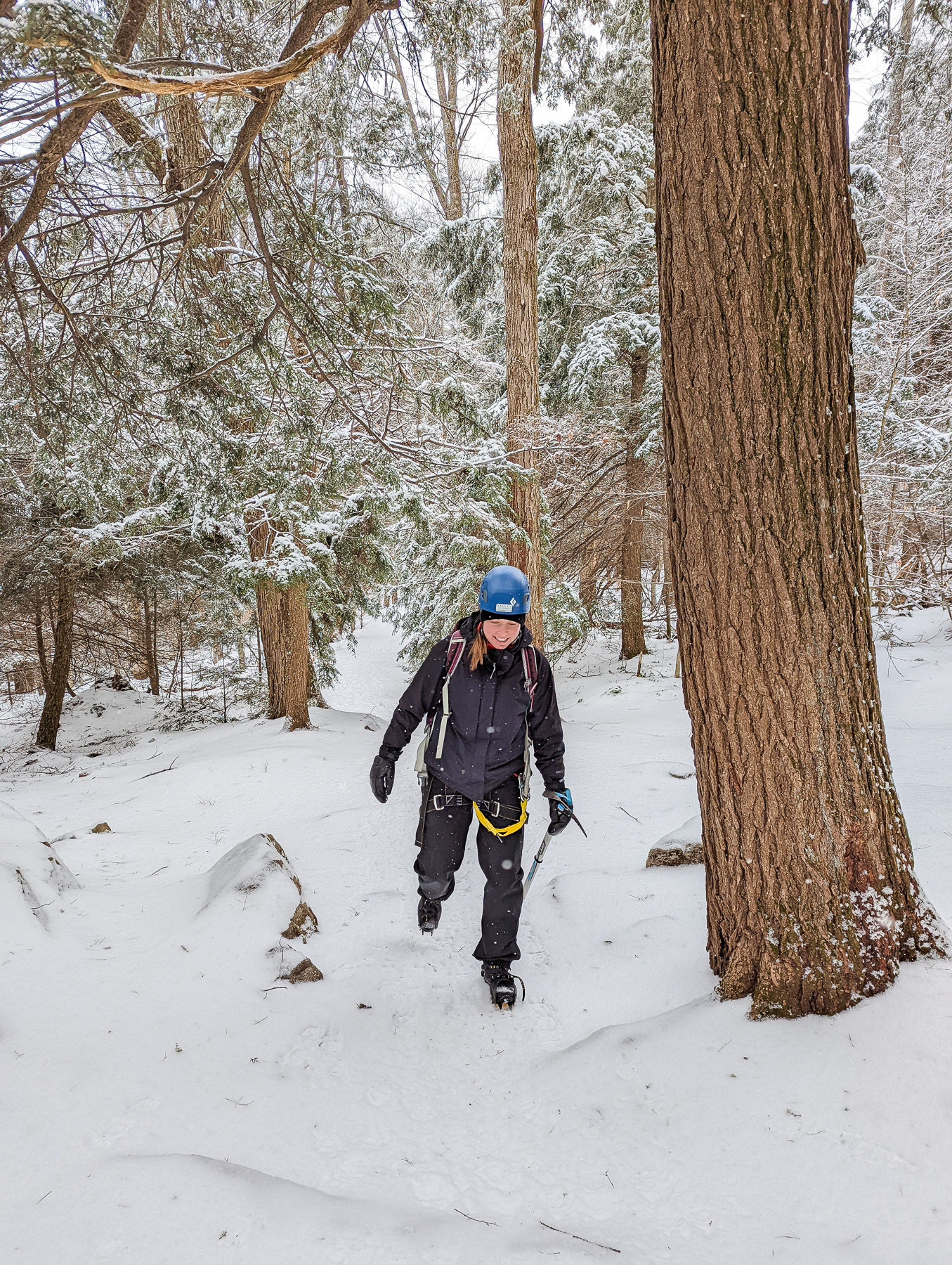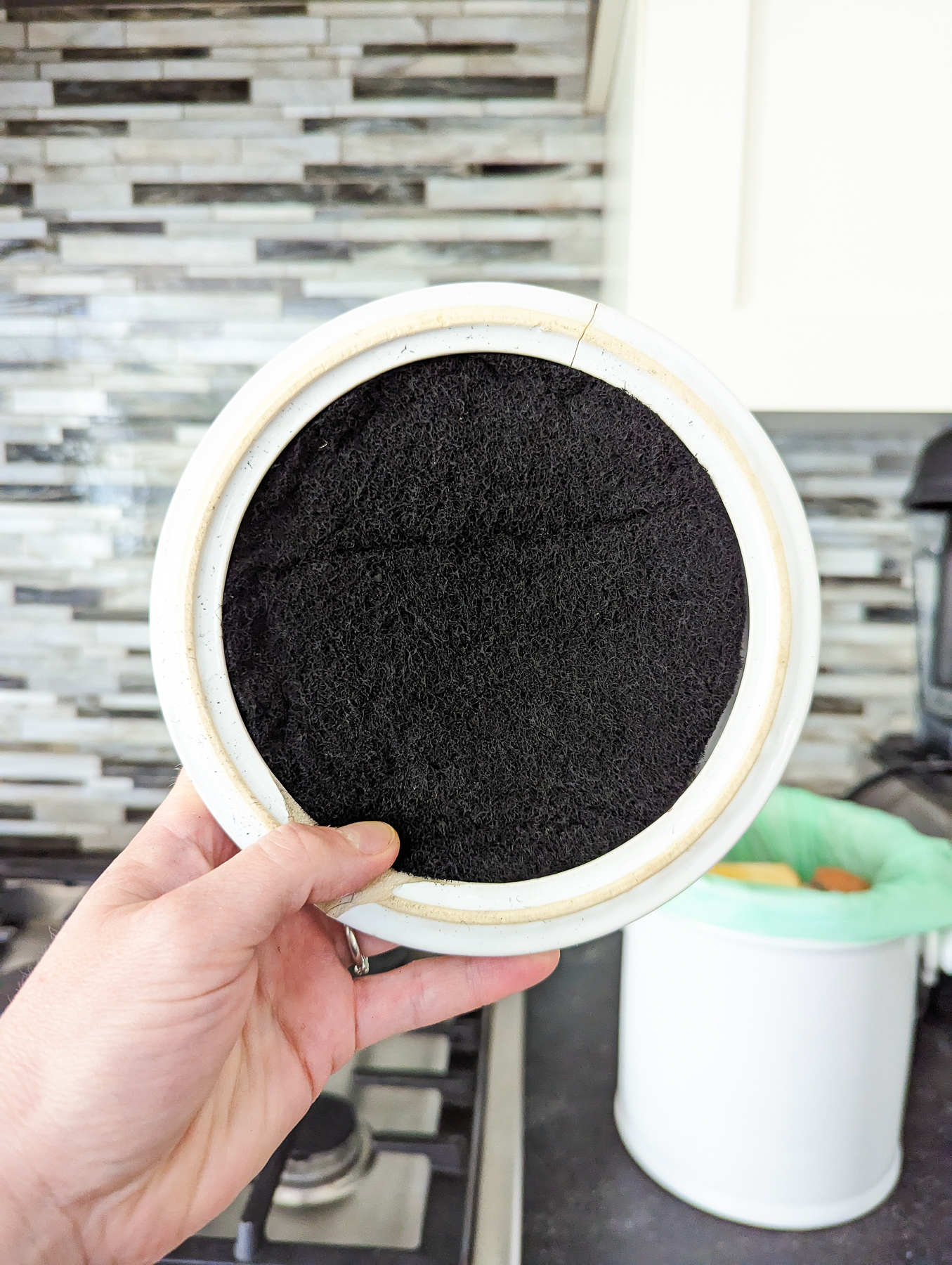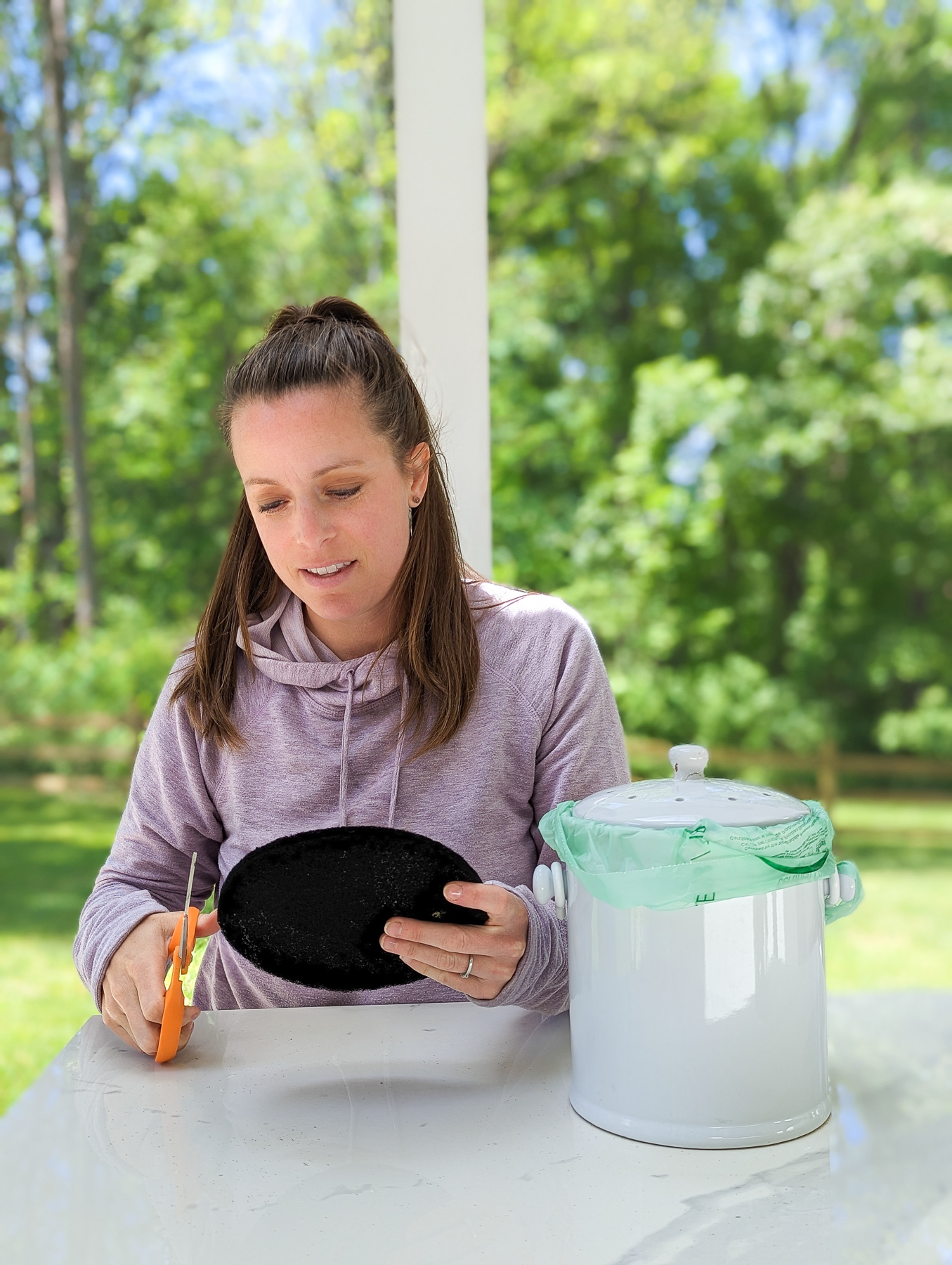6 Life Lessons Kids Learn From Composting
Playing with worms in the dirt. Is there any activity more classic for kids? Some might call it “wholesome summer fun”, but environmentalists call it composting. Composting offers so many benefits, and some are less obvious than others. Read on for some great lessons kids (and parents…let’s be honest) can learn from composting.
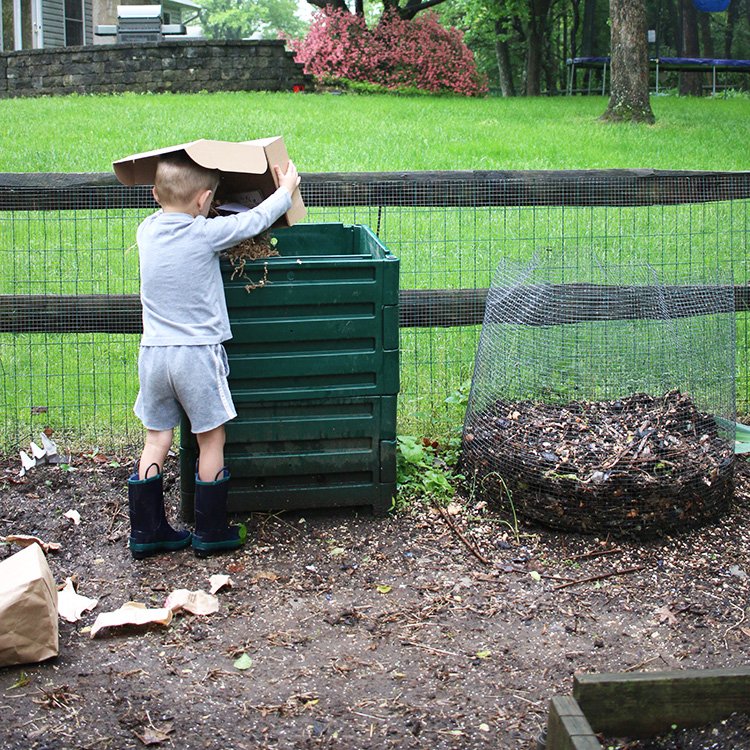
If you compost at home, do your kids help with composting? Do they participate in collecting food scraps? Do they help turn the compost or spread it when it’s ready for use? As long as we don’t frame it like work, composting is pretty interesting and can be really fun for kids. My boys like to get involved, especially when they can help mix up the contents or search for worms.
Whether we are adding food scraps to the compost crock on the counter, mixing the greens and browns in the bin, or spreading the humus on our raised beds, working with the compost pile is a good chance to remind our kids about taking care of and giving back to the Earth.
The science behind composting is pretty darn interesting. But there’s even more to learn from composting beyond the worms and microorganisms turning trash into gardening treasure. Much like we can learn a slew of life lessons from caring for a garden, managing a compost pile offers its own set of character-building rewards.
These are 6 life lessons we can teach our kids by incorporating composting into our family culture.
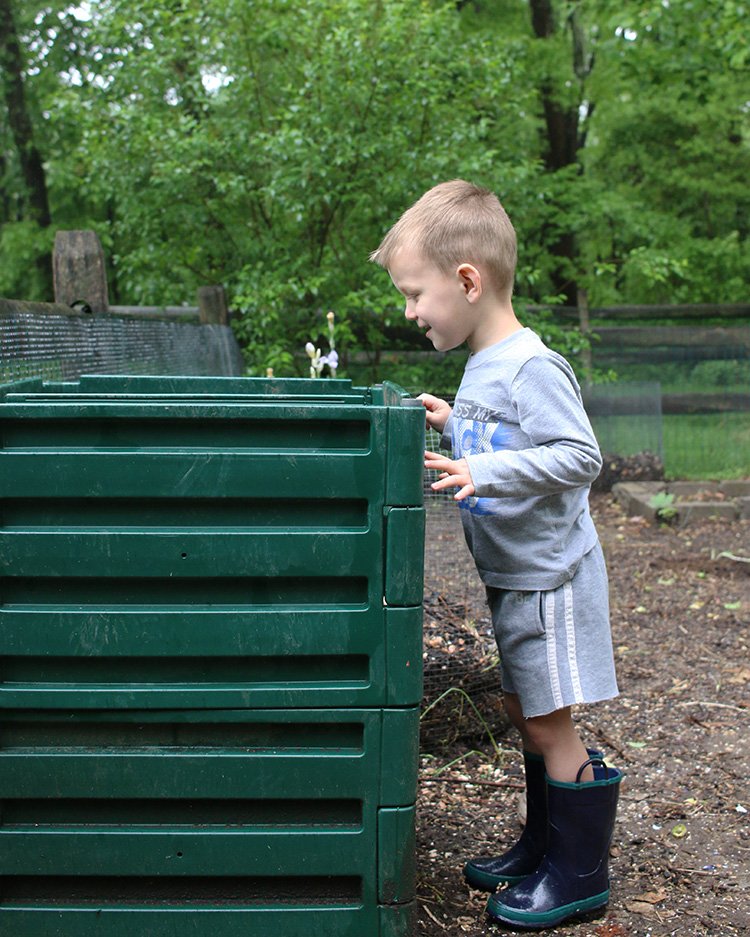
6 Life Lessons Kids Learn From Composting
Diversity is Paramount
A compost pile with just one or two types of material doesn’t do much. In order to flourish, the compost pile needs diversity; it needs a variety of greens and browns to feed the microorganisms and become a nutrient-rich matter for future crops. Diversity adds complexity to and increases the quality of the compost output; the same can be said for our communities and companies.
The Little Guy Matters
Worms are tiny workhorses in a compost pile. Many of the real warriors in a bin or pile are so small we can’t even see them. Little creatures can do big things and the importance of something or someone is not necessarily dependent on its size.
We Can’t Always See The Most Important Things
Much of the transformation in a compost pile happens buried under dirt or at the microscopic level. We see a compost pile at various stages of transformation, but we never really see the transformation in progress. Compost piles can teach your kids that sometimes the most important components of a process or aspects of a situation are hidden or buried beneath the obvious.
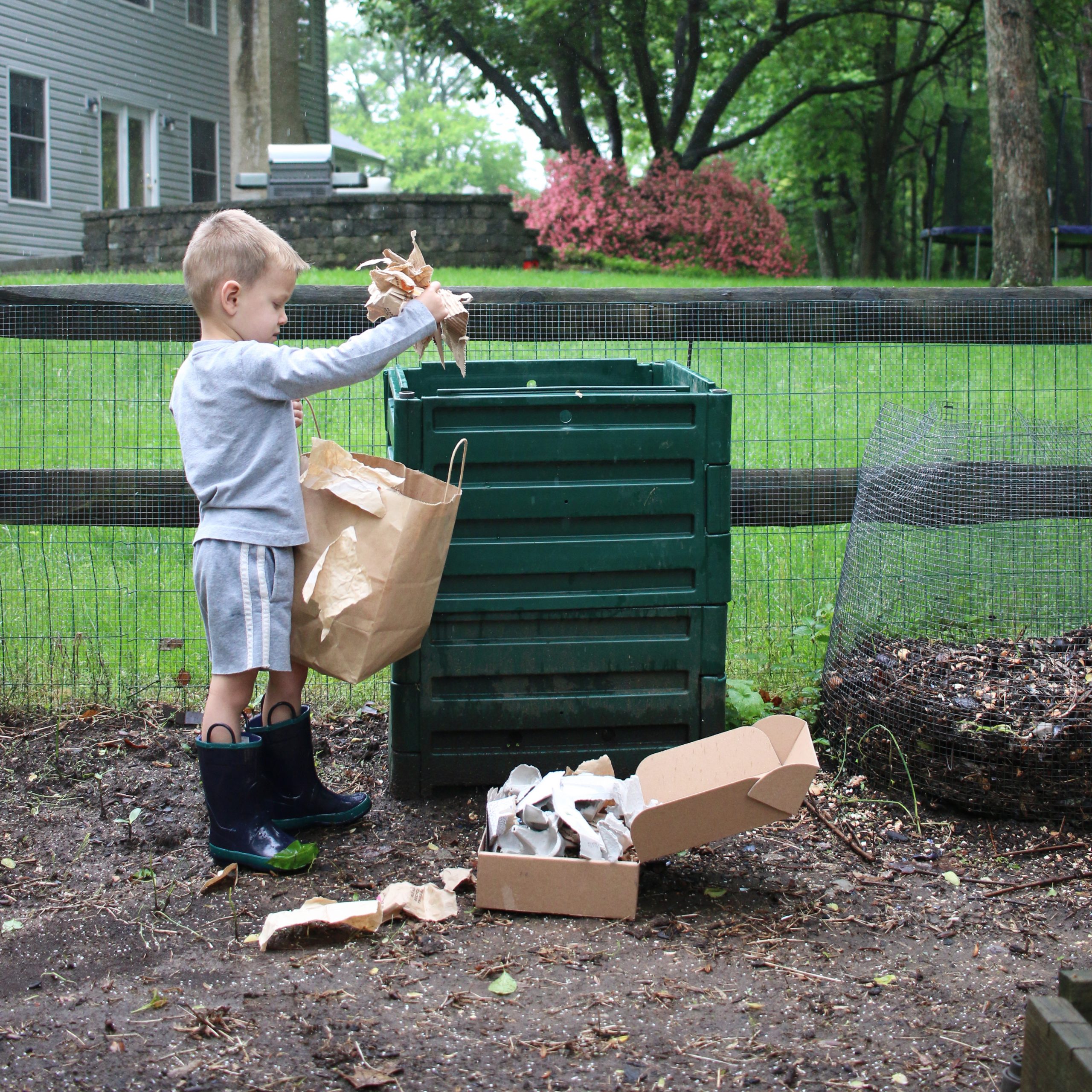
Patience!
Composting is nothing if not an exercise in patience. We can exact the science to speed up the decomposition but it still takes weeks at best with perfect execution to realize the fruits of our labor and commitment. For everyday families like ours who employ laid back and far from exact composting habits, patience is even more important. A compost pile is a great way to reminder kids that patience pays and sometimes the passage of time can trash into treasure.
Old Things Can Have Great New Lives
Composting is the perfect example of the circle of life and circular consumption. Just because something is old or dated doesn’t mean it can’t be revived with new life and made fresh again. In a compost bin, food scraps, dead leaves, unwanted plants, old fabric scraps and more can become brand new soil nutrients and provide the foundation for new plants and food for our table.
Share With Others
Normally I do not encounter issues with animals digging through the compost bin. If I cover food scraps with browns like dried leaves or cardboard scraps, or if I turn the pile a bit just after adding food scraps, the decomposition happens smoothly, nothing smells and nothing attracts animals.
Last winter, however, after getting a little cavalier about the compost pile and leaving food scraps on the top of the pile, raccoons started scrounging in the bin. Initially, I thought to be concerned. But the compost bin doesn’t sit near our house, and they weren’t doing any harm elsewhere. So… why care if raccoons share in the wealth of our food scraps?
I ignored it, starting turning the pile after adding scraps (for the most part), and the raccoons have not returned. Either way, why not share with the animals? I may not want them in my house or eating everything in the garden, but so long as wildlife are not harming us, we should be able to live with them harmoniously.
What have you and your kids learned from composting? Share in the comments and we can all pass the good lessons along to our families as well!
Complete Guide To Composting At Home
For more information about how to compost at home, check out our Complete Guide To Compost At Home with loads of articles to answer all your questions about how to compost at home. We have resources, FAQs, interviews with everyday families who compost at home, and more!

